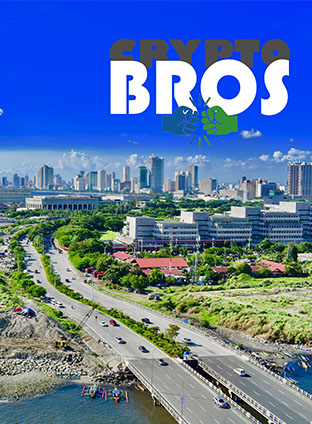Korean banks are slowly sinking their toes into the industry, while gaming companies are attempting to profit from the crypto-crazy market.
The overall theme of last week’s Korea Blockchain Week (KBW) event was “Keep building,” which was a full 180 from the considerably flashier presentation of the previous year. Local gaming startups dominated the event, offering game applications for the metaverse, arcade, racing, and betting that were developed on networks like Ethereum, Solana, and Cosmos, among others.
There were rumblings about Terra, the Do Kwon-run blockchain with a sizable Korean following, whose coins rose to a market valuation of about $40 billion before catastrophically collapsing. Some said it took the industry some time to shake off Kwon’s arrogance, but it was gradually regaining user trust.
According to Hoon Kim, the chief technical officer of blockchain project Astar, “from the discussions I had with the major ecosystem players, it did have a huge impact that forever changed the Korean [decentralized finance, or DeFi] ecosystem for institutions.” “It made it harder for retail investors to consider domestic projects, and companies started to look at all of their options with a critical lens.”
But given that businesses and institutions are focusing more on real-world applications of various discoveries, I would also argue that this is a net good. Therefore, DeFi or anything that depends on the state of the market carries too much risk for firms, Kim continued.
However, residents continued to have strong feelings towards Terra. Some others said they felt misled and anticipated better behavior from Kwon, a Korean.
Korean banks are thus slowly putting their toes into the sector. On stage on Tuesday, California-based cryptocurrency custodian BitGo said that it has reached a strategic business partnership with Hana Bank, a South Korean commercial bank.
The agreement encompasses tech partnerships, security solutions, and a potential joint venture. According to reports, BitGo would also help Hana Bank in the second half of 2024 build custodial services.
Local developers and salesmen told CoinDesk that increased trading activity on regional exchanges is drawing conventional firms’ attention.
“The industry is facing intense scrutiny as a result of Terra’s failure. However, there is still a lot of trading going on, according to NFTBank’s chief operating officer, Jen Kim. “In actuality, Upbit has recently noticed an upsurge in trade volume. Korea therefore still has the chance to contribute significantly to raising the market.
Prices of the closely similar XRP coins rose in July as a result of a successful court battle involving Ripple Labs, with local market UpBit recording $2.5 billion in volumes over a 24-hour period.
On the application side, publicly traded Korean game developer Neowiz said that its Web3 arm IntellaX intended to develop games on the Avalanche blockchain. One major factor identified was Korea’s thirst for blockchain games and esports, with a sizable fan following for many different gaming cultures and a great deal of consumer curiosity.
‘ETF’ Moments Are Needed in Gaming
Even while blockchain-based gaming was a major subject throughout the conference, some developers argued that the industry could be a little bit overhyped.
According to Kim of Astar, “I wouldn’t say blockchain gaming or NFTs are of enormous interest to users.” Users are seeking out novel experiences more frequently, and as a result, firms are beginning to face less competition in the traditional market.
Many of the most popular blockchain games only have a few hundred to a thousand users, which is a tiny fraction of the number of third-tier conventional games on platforms like Steam. As a result, the industry as a whole is struggling to discover a breakout title.
Kim said, “So, in order for businesses to remain competitive, they are motivated to produce something fresh for a different generation, and it just so happens that blockchain technology is the perfect thing for utilizing the network effect that the younger generations desire.
South Korea Is Still Not a Hub
As a final observation, it should be noted that the event is still very much a Korea Blockchain Week and not a pan-Asia or global gathering like the current Token 2049 conference in Singapore.
Advertising and the trade fair floor were dominated by regional businesses. Given that Korea has a sizable economy and a robust local crypto sector, this is to be expected.
But there is only one market for cryptocurrencies, which is a global industry. In the realm of traditional finance, traders that specialize in investing in developing market financial markets, together with the business of supporting infrastructure, may be seen.
This example doesn’t apply to cryptocurrencies. There isn’t anything comparable to the South-East Asian or African bond or stock markets. Only one cryptocurrency market exists.
Therefore, a localization-centric approach sacrifices liquidity. A cryptocurrency product has a greater likelihood of being abandoned or becoming vapourware the more regionalized it is, with the exception of exchanges that need to focus on licensing and fiat onramps.
Numerous gaming and NFT initiatives attempted to cash in on anything Japanese during the IVS crypto conference held in Kyoto last month, but on-chain data indicates that many of these have now come tumbling down to earth.



































